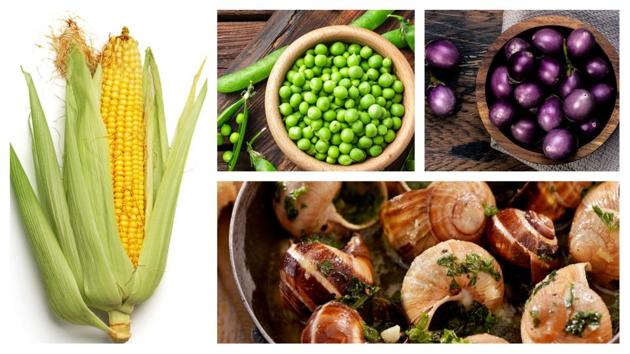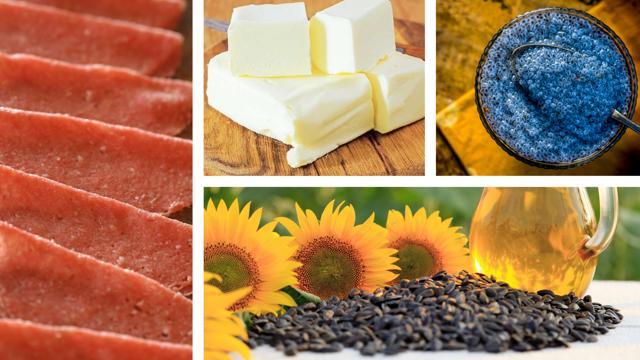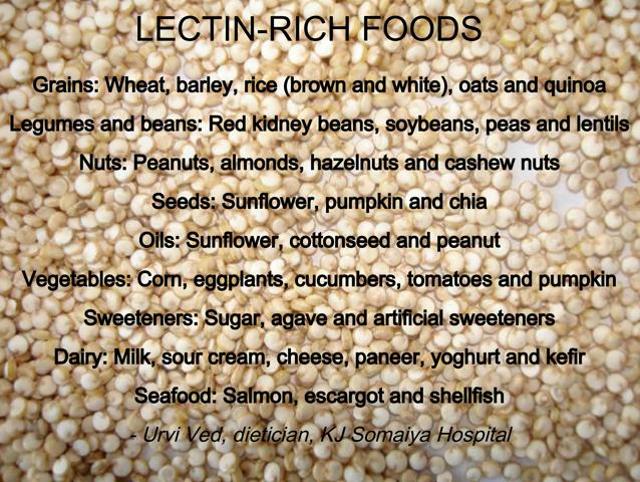Can we really do without lectins?
As the debate over lectins heats up, we ask experts if a diet without the protein that is found in meat, whole grains, seafood, nuts and dairy is practical and whether it’s relevant to good health.
A book recently released by Dr Steven R Gundry says that consuming foods high in lectins pushes the body to store fat. So what exactly are lectins, and why are they the latest nutrient to come under the scanner?

Lectins are a type of protein that can readily bind to cell membranes. They are indigestible, travel through the gut unchanged, and therefore, are thought to reduce the body’s ability to absorb beneficial nutrients. Lectins are one of the poorly understood nutrients causing researchers to speculate that they can trigger negative responses.
What are the benefits of lectins?
Lectins play an important role in the formation of new cells. They also play a vital part in activating a complementary immune system that helps in fighting diseases. Richa Anand, dietician, Dr LH Hiranandani Hospital, explains, “Plant lectins bind carbohydrates during digestion, slowing or preventing their breakdown. This way, they reduce the glycaemic effects of the food.” She adds that this action of lectins is a contributing factor for weight loss and has an antidiabetes effect on our body.

The debate about its harm
When it comes to the harm that lectins cause there is clearly a divide among nutrition experts. On one hand, Pune-based nutritionist and author Rita Date gives it a clean chit. “There is no harm in eating lectins. Most of the foods that have lectins are cooked, sprouted or fermented and the lectins content is reduced. If you look at a risk to benefit ratio, the benefits are much greater,” she says.
On the other hand, Dr Deepti Bagree, head of department - healthcare, Reset Holistic Living Concepts, suggests that when consumed in higher quantities, lectins can turn harmful. She says, “Food, upon passing the gastrointestinal tract, causes minor damages to the lining which is repaired promptly. Lectins not only cause similar damage, but also obstruct the repair process. If eaten in larger portions, they signal the body to empty the intestinal tract leading to diarrhoea, vomiting, etc. As 70% of our immunity lies in our gut, a minor damage to the gut lining caused due to eating lectins leads to an elaborate immune response and may cause inflammation, skin rashes, joint pain etc.” The key to minimise these side effects is to eat in moderation.
According to Bagree, the following tips will help prevent lectin-induced digestive problems:
Soaking: The age old method is attributed to deactivating lectins. The best way is to soak beans and legumes overnight and change the water often, and wash them before cooking.
Fermenting: Popular in south India, this process is highly recommended to eliminate the harmful components. The fermenting bacteria dissolves the negative factors from the food and lectin is not spared too.
Sprouting: The longer the period for sprouting, the more time the lectins will take to get deactivated, as most of the grains have lectins in the seed coating, and sprouting metabolises the seed coating, thereby lowering the lectin levels.
Peeling, pressure cooking and deseeding: These three cooking methods also help reduce the total number of lectins. For example, on an average, red kidney beans contain 20,000 to 70,000 units. But, though pressure cooking reduces them to 200 to 400 units.

Who should go off lectins?
Lectins are not harmful for the general population and doctors advise this kind of elimination diet only in rare circumstances to patients with food allergies. “A lectin-free diet is a restrictive diet and is one of the many fad diets,” says Amrita Parab, nutritionist, Digestive Health Institute by Dr Muffi, adding, “In case of strong intolerance towards lectin-rich foods, autoimmune diseases such as celiac sprue and irritable bowel syndrome or gastric trouble, this form of diet can be considered.”
With inputs from Indrayani Pawar, dietician, Hinduja Healthcare Surgical, Delnaaz T Chanduwadia, dietician, Jaslok Hospital And Research Centre, Zoya Fakhi, nutritionist, Bhatia Hospital and Raheela Hasan,nutritionist, Fitrition.
Follow @htlifeandstyle for more
The author tweets @iamsusanjose
Catch your daily dose of Fashion, Taylor Swift, Health, Festivals, Travel, Relationship, Recipe and all the other Latest Lifestyle News on Hindustan Times Website and APPs.
Catch your daily dose of Fashion, Taylor Swift, Health, Festivals, Travel, Relationship, Recipe and all the other Latest Lifestyle News on Hindustan Times Website and APPs.






